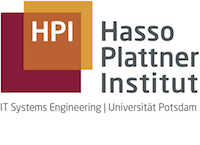Thank you for attending Modularity: aosd • 2012.
Modularity: aosd 2013 wil be held in Japan.
March 25–30, 2012
Hasso-Plattner-Institut Potsdam, Germany
Modularity transcending traditional abstraction boundaries is essential for developing complex modern systems - particularly software and software-intensive systems. Aspect-oriented and other new forms of modularity and abstraction are attracting a lot of attention across many domains within and beyond computer science. As the premier international conference on modularity, AOSD continues to advance our knowledge and understanding of separation of concerns, modularity, and abstraction in the broadest senses of these terms.
The 2012 AOSD conference will comprise two main events: Research Results and Modularity Visions. Both events invite full, scholarly papers of the highest quality on new ideas and results in areas that include but are not limited to complex systems, software design and engineering, programming languages, cyber-physical systems, and other areas across the whole system life cycle.
Research Results papers are expected to contribute significant new research results with rigorous and substantial validation of specific technical claims based on scientifically sound reflections on experience, analysis, or experimentation.
Modularity Visions papers are expected to present compelling new ideas in modularity, including strong cases for significance, novelty, validity, and potential impact based on thorough scholarly argumentation and early results.
AOSD 2012 is deeply committed to eliciting works of the highest caliber by employing a new approach to reviewing with three separate paper submission deadlines and review stages. A paper accepted in any round will be published in the proceedings and presented at the conference. A paper rejected in an early round may be invited to be revised and resubmitted for review by the same reviewers in a later round. There is no guarantee that a revised paper will be accepted. Authors may, on their own initiative, resubmit a rejected work in a subsequent round, in which case new reviewers may be appointed. Authors submitting a revised paper should attach a letter explaining the revisions made to it.








